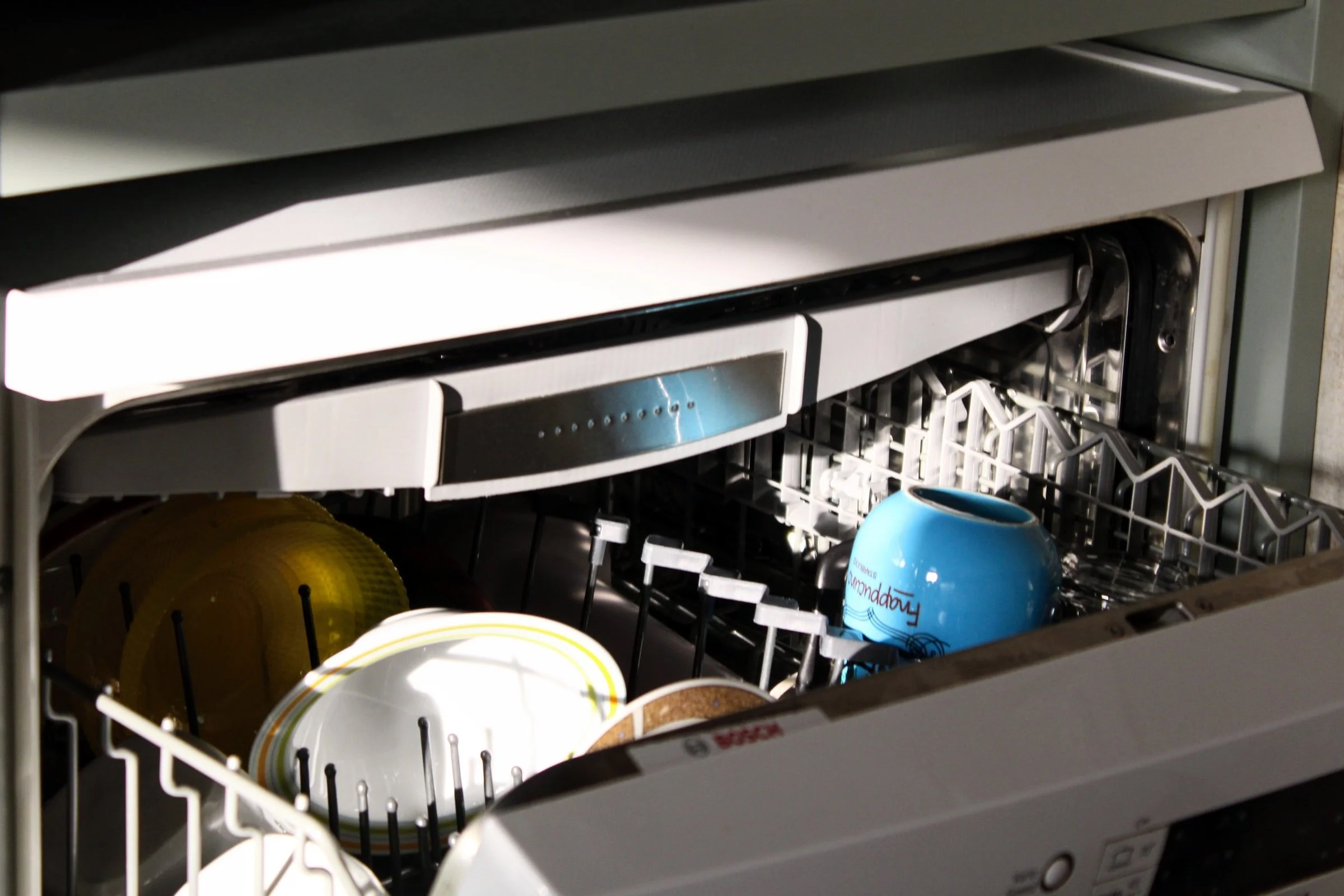When you think about fire hazards in the kitchen, a dishwasher might not be the first appliance that comes to mind. After all, think about all of the other appliances in your kitchen that generate heat — you’ve got things like your oven, your stovetop, your toaster, even your crockpot. It’s easy to imagine something burning in the oven or sparks catching while you’re in the middle of cooking something in a frying pan. But your dishwasher? That sounds surprising.
And you’re not alone in that assumption. In fact, when most people think of household appliances likely to cause a fire, they’re inclined to think of cooking appliances. But after those cooking appliances are ruled out, a dishwasher is the second most common source of a kitchen fire.
Why? Well, you’ve probably noticed that dishwashers get hot. Really hot. When you open the dishwasher, all the steam comes out and your dishes are warm to the touch. Also, bear in mind that dishwashers run electrically, and they involved water. If the heating element gets too warm, and ultimately overheats, it could melt any surrounding plastic and catch fire.
Additionally, you have plenty of electrical wiring in proximity to the flow of water — if water causes an electrical surge, sparks could fly. Add to all of this the high wattage the electrical wires use and the friction caused by the motor running…well, you start to understand why a home appliance known for using water has such potential to cause a fire. Poor maintenance or using the dishwasher improperly can increase the risk.
Now, don’t let all of this freak you out. Most fire safety experts and electrical engineers will tell you that dishwashers are safe as long as you follow the instructions that come from the manufacturer. In most situations when a dishwasher catches fire, it’s because the dishwasher was:
old and worn out,
new but faulty, or
improperly installed.
If you’ve had your dishwasher for a few years and everything is working fine, you’re probably in the clear.
How Common Is A Dishwasher Fire?
What are the specific numbers when it comes to dishwasher fires? Apparently, fires start every 63 seconds and cost an estimated $10.3 billion in property damage. If you check out the website saferproducts.gov, which is run by the Consumer Products Safety Commission, you’ll find hundreds of complaints from people about their dishwashers that suddenly started smoking.
If you’re home when your dishwasher starts smoking or catches fire, you’ll have the opportunity to put the fire out before it gets out of control. Unfortunately, many people think nothing of setting their dishwasher to run for a cycle, then step out to run an errand or head back to their bedroom to go to sleep. These situations mean nobody is home or awake to contain the fire when it inevitably erupts.
What can you do to prevent a dishwasher fire?
How can you tell if your dishwasher is a risk? One of the smartest things you can do is have your dishwasher professionally inspected every year by a plumber. A plumber will be able to take the appliance apart and look at the internal components. In a situation where the internal components are leaking, or where wires are collecting moisture, a plumber will be able to fix it.
Here are some other safety tips you should consider:
If you buy a new dishwasher, keep an eye on the manufacturer’s website for the first several months (or longer if you wish to be especially careful). If there are any faulty parts, the manufacturer will put out a safety notice or even issue a recall.
Only use your dishwasher when you’re able to supervise it. Although it’s convenient to just “set it and forget it” by starting the dishwasher when you leave for work in the morning, it’s just not safe. If you wish to run your dishwasher late at night — that is, after dinner — you should do it at an hour when you know you’ll be awake for the duration of the dishwasher’s run.
When you install your dishwasher, make sure all the wires are the right size or else they could come loose and get wet. Additionally, you want to make sure the electrical outlet you’re plugging the dishwasher into is able to handle the necessary wattage.
Check any and all components regularly to make sure they are functioning as they should. For example, the latch to the hole where you put the detergent might be shutting improperly.
Install a fully functioning smoke alarm in your kitchen or whatever room where your dishwasher is installed. It is also advantageous to keep a fire extinguisher or a fire blanket in an easily accessible place. This will help you contain or put out any fire should one arise (which it, hopefully, will not).

